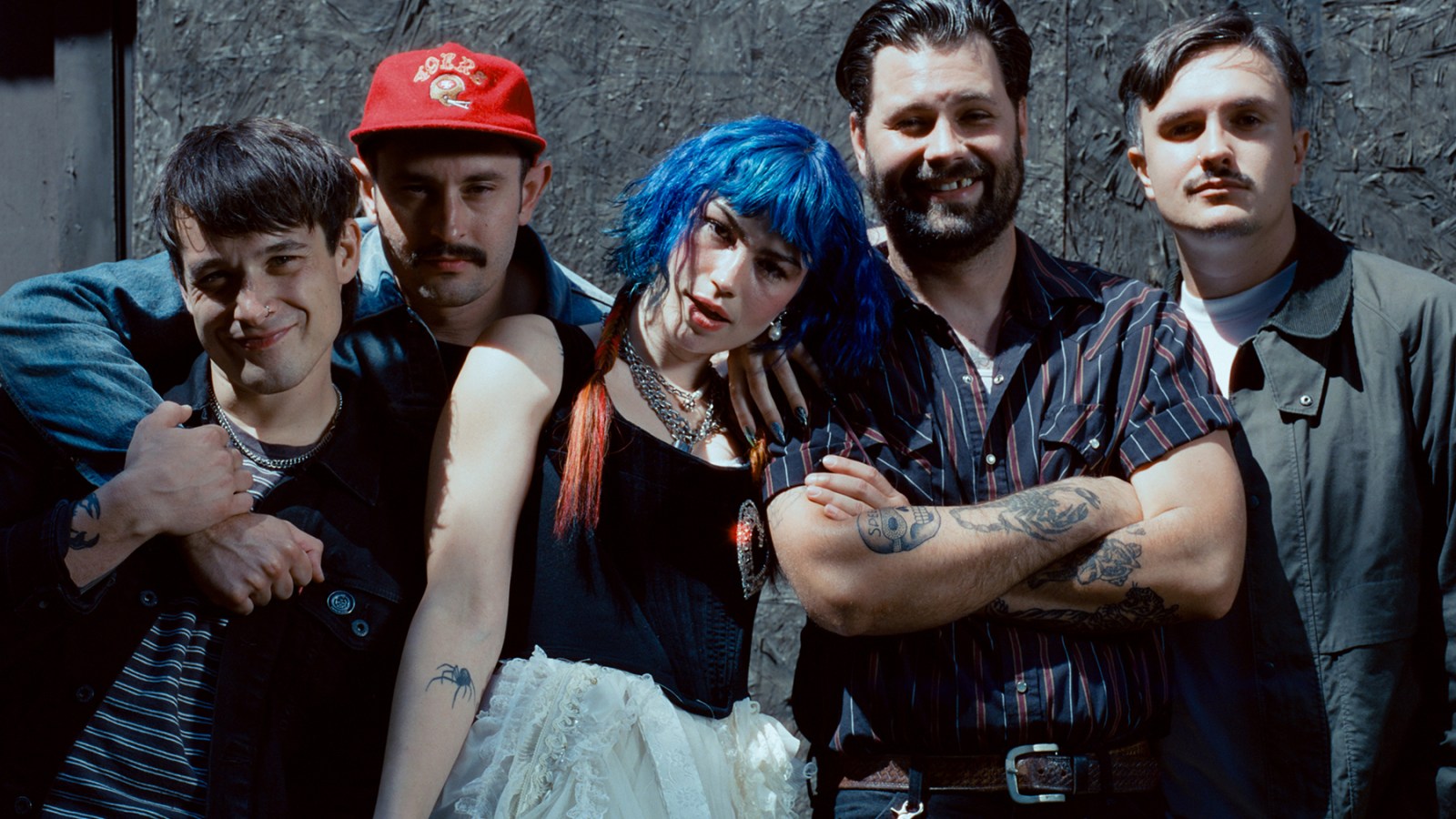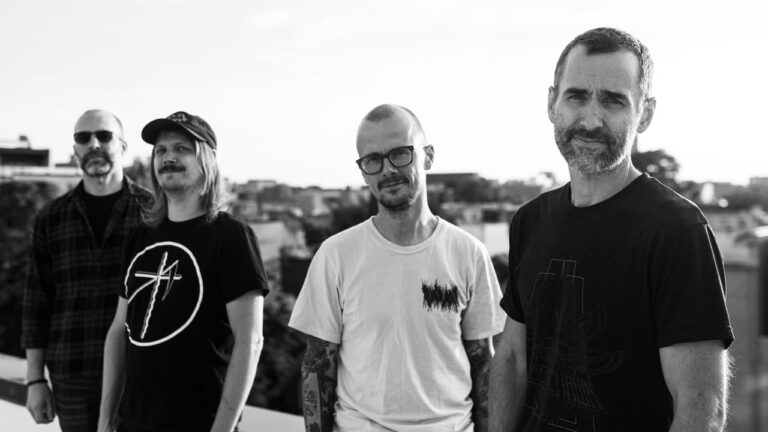Last November, when the Kentucky band Knocked Loose played Jimmy Kimmel Live!, it looked more like something out of a punk festival such as Riot Fest or Sound and Fury than late-night TV. Frontman Bryan Garris let out a mighty pig squeal as guest vocalist Poppy thrashed and screamed across the stage, dressed like an even more macabre girl from The Ring. Kitted out in black clothing, Knocked Loose unleashed paint-peeling metalcore as a mosh pit surged like an ocean during a storm. It was a rager of a performance that reportedly left some viewers’ children in tears — and old-school hardcore bros scratching their heads. Was such a hard band playing on such a big pop-culture stage good for the scene — or did it signal the death knell of a fiercely underground genre?
Since Southern California’s Black Flag helped invent the punk subgenre with their 1979 EP, Nervous Breakdown, hardcore has been protected from the mainstream, a kind of secret club for disaffected youth in the know. “Hardcore was never part of the music business,” says Steve Blush, author of the 2001 history American Hardcore. “It was completely underground. There were no industry constructs. It’s the most true music ever.”
Recently, though, hardcore has found a shocking new level of success outside of the usual confines of the scene. The most notable breakthrough has been the popularity of Maryland band Turnstile, which turned the genre on its head with 2021’s Glow On, a mélange of rock & roll, R&B, and psychedelia that opened the doors for further experimentation. Loud, danceable, and unlike anything in rock at the time, Glow On touched a nerve with fans hungering for connection and catharsis — creating a groundswell that eventually led to unlikely Grammy nominations.
Poppy
Sam Cannon*
Now, hardcore basically has something for everyone: Knocked Loose’s punishing You Won’t Go Before You’re Supposed To is id-feeding metalcore; California band Scowl get melodic and metal in equal measure on their 2023 EP, Psychic Dance Routine;while bands like Britain’s High Vis mix New Wave into the sludge on 2024’s Guided Tour.
And it seems like the fans are here for it, too. Not only did Knocked Loose start a mosh pit on mainstream TV, they’ve also garnered a surprise 2025 Grammy nomination for Best Metal Performance (despite making music for more than a decade). And they’re not the only hardcore band to get a nod; Turnstile was nominated in both the rock and metal fields in 2022, while metalcore band Code Orange snagged noms in 2018 and 2021, the latter for 2020’s glitchy masterpiece, Underneath. Meanwhile, Scowl teamed up with Taco Bell for their unofficial Women’s World Cup halftime show in 2023; and Post Malone belted L.A. band Miltarie Gun’s deliriously fun fan favorite “Do It Faster” backstage with the band that same year.
Why this influx of newly minted moshers? Many bands I talked to attribute the proverbial vibe shift to the aftereffects of the pandemic. “After lockdown, people were hungry for collective experiences,” says Graham Sayle of High Vis. “Hardcore shows are the most exciting, unifying sort of moments. It’s a kind of freedom — especially with stage diving.” Scowl frontwoman Kat Moss says, “The landscape has changed through the internet. There’s so much more access to seeing DIY culture and shows.”

Knocked Loose
Brock Fetch*
It doesn’t hurt that this generation of bands isn’t much interested in genre distinctions or the kind of strict musical orthodoxy older artists and fans once clung to — take Turnstile’s Grammy nominations in both rock and metal. “I personally like that because, for a lot of us, ‘genre’ feels like an antiquated term and perspective,” drummer Daniel Fang told me after the band’s 2022 noms. Poppy, who guests on Knocked Loose’s “Suffocate,” would agree; she’s not a hardcore artist, she says, even though she can scream with the best of them. “Heavy music is more of a flavor that I use in what I do, but it’s not my project’s entire identity,” she says. Oklahoma sludge-metal band Chat Pile have also been welcomed into the scene, despite not technically being a hardcore band. “The world of hardcore seems to be bringing in a lot of people from a lot of different areas and backgrounds,” says bassist Stin, who cites the “overwhelmingly positive” response the band got playing two festivals catering to the “capital H hardcore” crowd.
There are always going to be gatekeepers — members of the decades-old scene who think fans need to “earn your stripes,” according to Jem Siow of Australian hardcore band Speed. Bands like Scowl, however, aren’t all that bothered by that. “I think the gatekeeping conversations are silly,” Moss says. “While I understand it and agree in a lot of ways — protecting something that’s really special to us all — it’s like, who are we protecting it from?”
As for where the scene is heading in 2025? “I would like to see hardcore succeed as being the crucible for revolution that it talks about,” Blush says. And for the bands? It’s all about live. “I think hardcore and the shows are a place to put your pain and your anger and your frustration, and I think that’s what people are seeing online and the short-form videos that they stumble across,” Poppy says. “But they need to get offline and go to a show. I think you have to be there for the experience.”




Leave a Comment